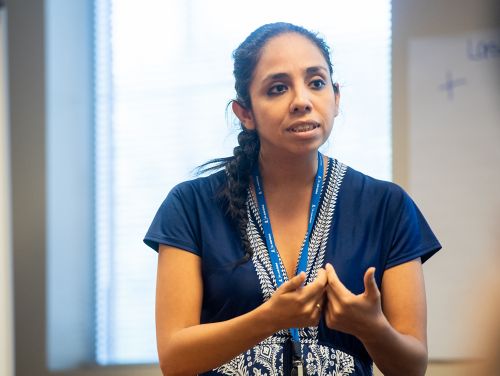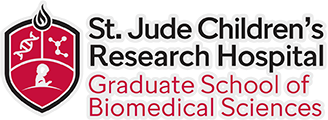
Liliana Vasquez, MD, pediatric oncologist and global health student, is helping Peru adopt universal coverage for early cancer diagnosis and treatment for children.
Liliana Vasquez, MD, a student in the St. Jude Global Child Health master’s program of the St. Jude Children’s Research Hospital Graduate School of Biomedical Sciences, played an instrumental role in the planning and passage of Peru’s National Program for Cancer in Children and Adolescents. This new law, passed in September 2020, guarantees universal coverage for early cancer diagnosis and treatment for all Peruvian children and adolescents.
“The potential impact of this law is huge,” Vasquez said. “It will save at least 650 lives each year and add 169,000 years to the cumulative lifespan of children who receive successful treatment and survive to adulthood.”
Vasquez is a pediatric oncologist and a national consultant for the Global Initiative for Childhood Cancer at the Pan American Health Organization (PAHO) in Peru, which serves as the World Health Organization (WHO) regional directorate for the Americas.
Colectivo Cancer Infantil YA
“I have been deeply involved,” Vasquez said, “at first in technical assistance for the development of the proposal, and later in modifying the legislation and in advocating for its passage. PAHO-Peru has been a key stakeholder for the passage of the law.”
The story of this law’s passage began in 2016, when a group of pediatric oncologists, including Vasquez, presented the plan before the Congress of the Republic. The group and their colleagues also published a series of scientific articles about abandonment of treatment, delays in diagnosis and poor care conditions. In Peru, 20% of pediatric cancer cases are never diagnosed and 18% of patients abandon treatment due to financial difficulties.
St. Jude Global, an initiative established in 2018, aims to increase the survival rates of children with cancer by sharing knowledge, technology and organizational skills. The organization’s emphasis on educating rising physician leaders around the world in the area of global child health is a key factor in the master’s program.
It was St. Jude Global’s involvement with the Peruvian campaign in 2018 that led to the selection of Peru as a focus country for the Global Initiative for Childhood Cancer in 2019. Meanwhile, popular support for the law steadily grew in Peru under the banner Colectivo Cancer Infantil YA (Childhood Cancer Law NOW).
In addition to universal health coverage for early diagnosis and treatment, the national program guarantees cost-of-living stipends for patient families to offset parents’ lost wages while caring for their children. The program will maintain a National Pediatric Cancer Registry to collect and manage cancer case data. This registry will help Peruvian health care leaders plan research efforts and evaluate cancer prevention and control interventions.
Congress passed the law in September and its supporters continue to press for administrative implementation during a difficult year.
“Right now, we are working on the regulation of the law, despite COVID and the political and economic crises,” Vasquez said.
Advanced training for improving health systems
Vasquez’ training in the graduate school’s Global Child Health program expands her skills to design and implement ongoing projects to benefit childhood care in Peru. But her thesis research has a more specific goal.
“In Peru, there is a significant problem with access to services due to centralization [in major cities] and a lack of healthcare professionals trained in childhood cancer,” Vasquez said. “My thesis is centered on a quality improvement project designed to reduce the mortality rate for febrile neutropenia in children with cancer.”
Peru’s role in the WHO Global Initiative for Childhood Cancer
In 2018, the World Health Organization and St. Jude began a five-year collaboration to raise the survival rate worldwide to 60% for six common pediatric cancers. Peru is one of the program’s five initial focus countries, representing WHO’s Region of the Americas. National, regional and international stakeholders convened in Lima, Peru, to establish a set of national core commitments to advance childhood cancer care. The National Program for Cancer in Children and Adolescents is the cornerstone of those commitments.
